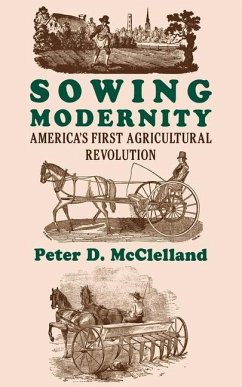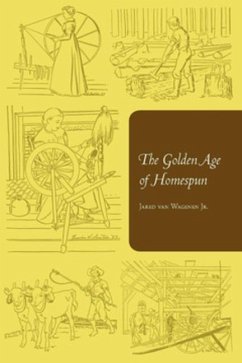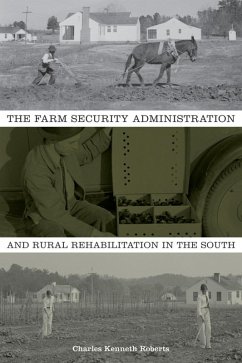
Sowing Modernity (eBook, PDF)
America's First Agricultural Revolution

PAYBACK Punkte
61 °P sammeln!
Contrary to those who regard the economic transformation of the West as a gradual process spanning centuries, Peter D. McClelland claims the initial transformation of American agriculture was an unmistakable revolution. He asks when a single crucial question was first directed persistently, pervasively, and systematically to farming practices: Is there a better way? McClelland surveys practices from crop rotation to livestock breeding, with a particular focus on the change in implements used to produce small grains. With wit and verve and an abundance of detail, he demonstrates that the first ...
Contrary to those who regard the economic transformation of the West as a gradual process spanning centuries, Peter D. McClelland claims the initial transformation of American agriculture was an unmistakable revolution. He asks when a single crucial question was first directed persistently, pervasively, and systematically to farming practices: Is there a better way? McClelland surveys practices from crop rotation to livestock breeding, with a particular focus on the change in implements used to produce small grains. With wit and verve and an abundance of detail, he demonstrates that the first great surge in inventive activity in agronomy in the United States took place following the War of 1812, much of it in a fifteen-year period ending in 1830. Once questioning the status quo became the norm for producers on and off the farm, according to McClelland, the march to modernization was virtually assured. With the aid of more than 270 illustrations, many of them taken from contemporary sources, McClelland describes this stunning transformation in a manner rarely found in the agricultural literature. How primitive farming implements worked, what their defects were, and how they were initially redesigned are explained in a manner intelligible to the novice and yet offering analysis and information of special interest to the expert.
Dieser Download kann aus rechtlichen Gründen nur mit Rechnungsadresse in A, D ausgeliefert werden.













